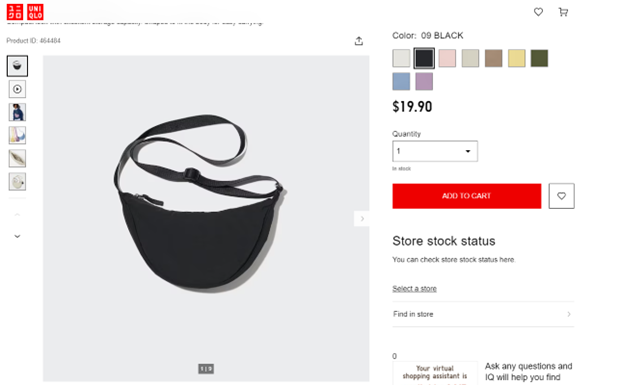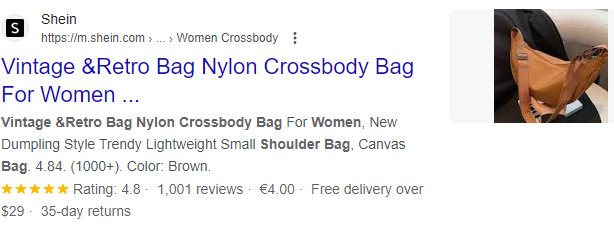Uniqlo v. SHEIN Wrapped Up in Legal Battle Over Alleged Intellectual Property Violations

Japan-based fashion manufacturer and retailer Uniqlo is suing China-based fast-fashion retailer SHEIN for selling a counterfeit version of their “Round Mini Shoulder Bag.” The suit was filed on Dec. 28, 2023, in the Tokyo District Court. Uniqlo’s parent company, Fast Retailing Co., Ltd., issued a consumer warning they have “found counterfeit and imitation versions of the UNIQLO Round Mini Shoulder Bag being sold in outlets and on online shopping sites which are not at all related to UNIQLO.” They state they are continuing their investigation and will consider pursuing legal action against companies that are manufacturing or selling the products. Fast Retailing also said, regarding the lawsuit, that “the sale of imitation products by SHEIN significantly undermines the high level of customer confidence in the quality of the Uniqlo brand and its products.”
The bag, which went viral on social media platforms like TikTok, was called the “Mary Poppins bag” due to its ability to fit a sizable number of items despite its deceptively small appearance. In its Q4 reports, Uniqlo says the bag’s social media popularity made it a bestseller. Further, Uniqlo claims competitors are capitalizing on the original product’s popularity to sell their own imitations and counterfeits.
Japan’s Unfair Competition Prevention Law prohibits the sale of imitation goods that lack new value or creativity, including counterfeit and pirated goods. These are considered “inexcusable imitations” and are subject to restriction.
Article 2(iii) of Japan’s Unfair Competition Prevention Act states: the term “unfair competition” as used in this act means any of the following: the act of transferring, leases, displaying for the purpose of transfer or lease, exporting or importing goods that imitate the form of another person’s goods (excluding that which is indispensable to its functioning). Uniqlo alleges that SHEIN’s imitations replicate the protected “Configuration [or form] of goods,” defined as “the external and internal shape of goods, and the pattern, color, gloss, and texture combined with the shape, which may be perceived by consumers when making ordinary use of the goods.” The “form of goods” protection is most similar to U.S. trade dress protections.
Many who have pursued lawsuits against SHEIN have accused the brand of getting involved with copyright infringement practices and have gone so far as to assert racketeering claims. Temu, a competitor of SHEIN, is also suing them for “anticompetitive conduct” and allegedly attempting to protect and expand the exclusivity of its power over the U.S. ultra-fast fashion market.
The original bag sells for $19.90 USD on Uniqlo’s website. SHEIN sold the alleged counterfeit for various prices under $10.00. Temu is among the retailers selling a version of the bag for $7.95. Another potential imitation is listed on AliExpress for $6.00. SHEIN appears to have removed the product from its website.
With the plethora of crossbody bags on the market, it will be interesting to see how the debate develops about the distinctiveness of this bag’s design. With the rise of fast-fashion, sham or counterfeit items are a hot issue for retailers keeping up with new trends day-by-day. If you need assistance with protection and enforcement of trade dress and other intellectual property rights, please do not hesitate to reach out to me at dmdefilippis@norris-law.com.
Danielle thanks Sajani Patel, law clerk at Norris McLaughlin, P.A., for her contributions to this blog.

Screenshot of Round Mini Should Bag in stock (Uniqlo.com)

Screenshot of Deleted Shein Vintage & Retro Crossbody Bag for Women (shein.com)




